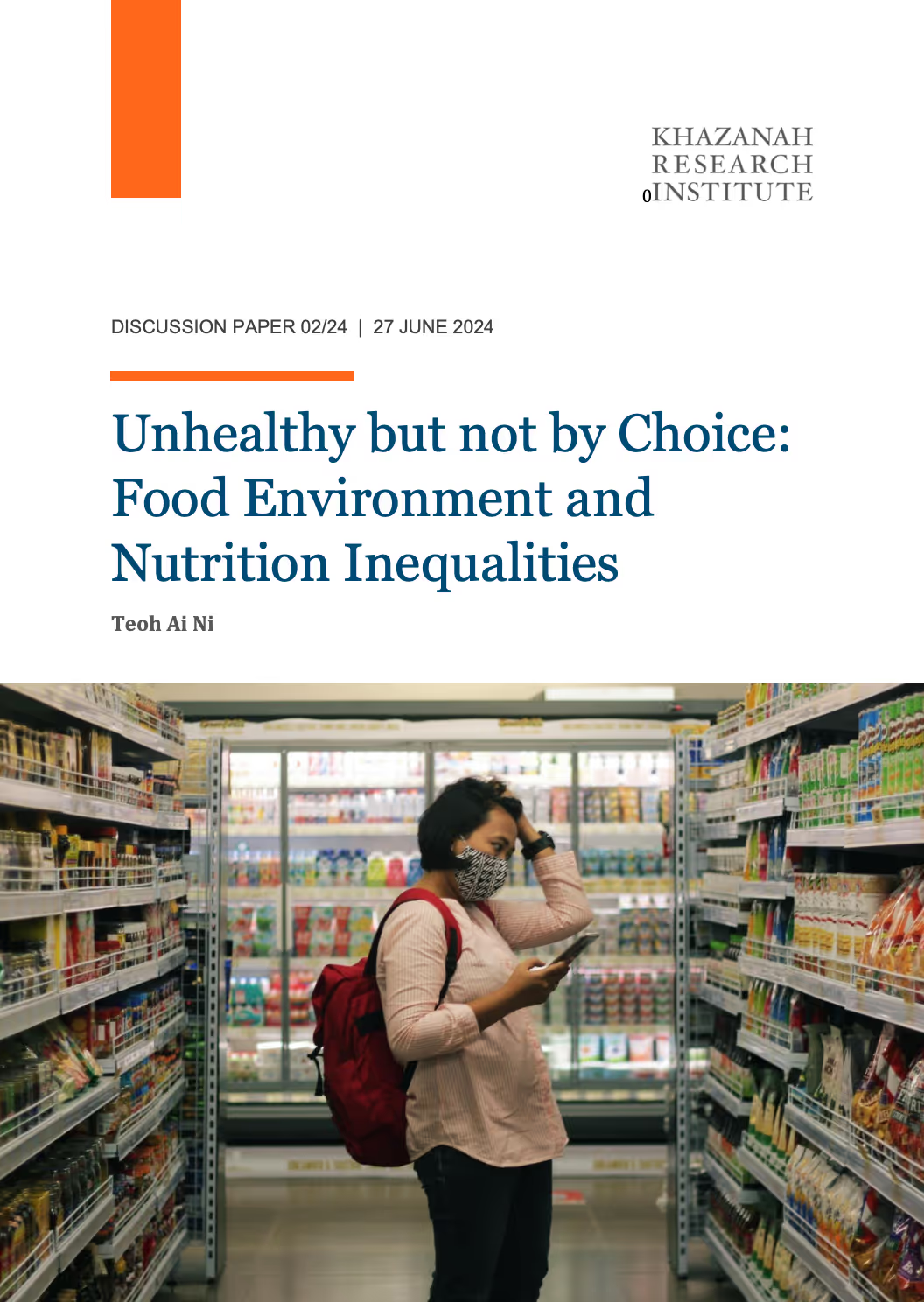
The food environment is a significant determinant of consumer food behaviours, making it a key policy entry point to tackle diet-related malnutrition. An examination of the food environment in Malaysia, however, shows that it is unfavourable for promoting the consumption of healthy diets. There is an increased availability of energy-dense and high-fat, sugar, or salt foods, which are often made more desirable through targeted advertising, especially to children. The increased rate of food away from home also poses additional challenges to eating healthy. Online food deliveries, which offer high accessibility to fast foods and sugary drinks, can contribute to the round-the-clock availability of unhealthy foods. Meanwhile, healthy diets are becoming increasingly unaffordable for people living in poverty or with low income. Although fruits and vegetables are essential food groups that make up a healthy diet, they account for the most significant proportion of the cost of a healthy diet, implying their relative unaffordability. The unhealthy characteristics of the food environment can negatively impact Malaysians' food choices. While the impacts can be population-wide, they are usually inequitable, with people experiencing financial and time constraints, children and adolescents being more likely to consume less healthy diets. The findings point to the need for equitable and more comprehensive food environment policies to induce system-wide improvements in the food environment in Malaysia. The paper also identifies several significant research gaps, necessitating additional in-depth food environment research to enable evidence-based policymaking.















